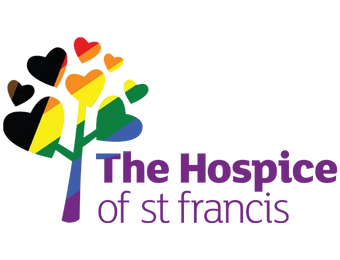
As a member of The Hospice’s rehabilitation services, physiotherapist Katherine is a qualified practitioner in the use of scar therapy to support patients typically recovering from cancer-related surgeries. With nearly a decade of experience in hospice care and a background in oncology physiotherapy at the Royal Marsden Hospital, where she first encountered scar therapy, Katherine brings expertise, enthusiasm and compassion to her practice.
Scar therapy – as Katherine explains – is a gentle, non-invasive massage technique designed to improve mobility and reduce pain caused by tight or puckered scar tissue which pulls on the skin. Many of her patients – often but not limited to cancer survivors – can experience restricted movement or discomfort due to post-surgical scarring. Through light-touch massage, Katherine helps ease adhesions and fibrous tissue, restoring flexibility and easing pain.
Initially, a thorough physical assessment will be conducted, with regular sessions lasting about 45 minutes comprising a review of their scar and movement, then around 30 minutes of hands-on treatment, and wrapping up with tailored exercises and scar care advice to continue their progress at home. Importantly, therapy can begin once scars are fully healed or just two weeks after radiotherapy, and even older scars can still benefit from this treatment. Courses typically run for six sessions, but these can be tailored to individual needs.
Katherine and her colleague Priya currently manage the service, seeing one to two patients weekly. Referrals come from both internal Hospice teams, and external sources like the Breast Care Unit in St Albans. With one in three people (or some 20 million people) in the UK living with a scar, the physical and emotional impact can be huge. On top of the physical issues, scarring can affect self-esteem and serve as a reminder of past trauma. However, the benefits of scar therapy can be profound – not just physically, but also psychologically – helping patients reclaim comfort and confidence after traumatic experiences.
One patient who found the therapy transformative was only expected to regain 75% movement in her dominant arm following two cancer surgeries that left her daily life severely impacted. Following a course of therapy working regularly with Katherine, both mobility and, more importantly, confidence was restored. As she attests, “Scar therapy has given me back the movement of my arm. I no longer feel limited by everything that has happened to me.”
Benefits of Scar Therapy
· Improved mobility: By gently mobilising scar tissue and surrounding skin, the therapy helps restore a range of motion, particularly in areas like the shoulder, neck, or abdomen.
· Pain reduction: The massage techniques used aim to ease adhesions and fibrous tissue, significantly reducing discomfort and pain.
· Support for psychological wellbeing: Scar therapy provides not only physical relief but also psychological support, helping patients feel more comfortable in their bodies.
· Empowerment through self-care: Patients are given exercises and scar care advice to continue their recovery independently between sessions.
· Timely and flexible treatment: Therapy can begin soon after surgery (once the scar is fully healed) or even years later, making it accessible to a wide range of patients.
· Positive outcomes: Many patients have experienced significant improvements, with some reporting transformative results after just a few sessions.






Share Article